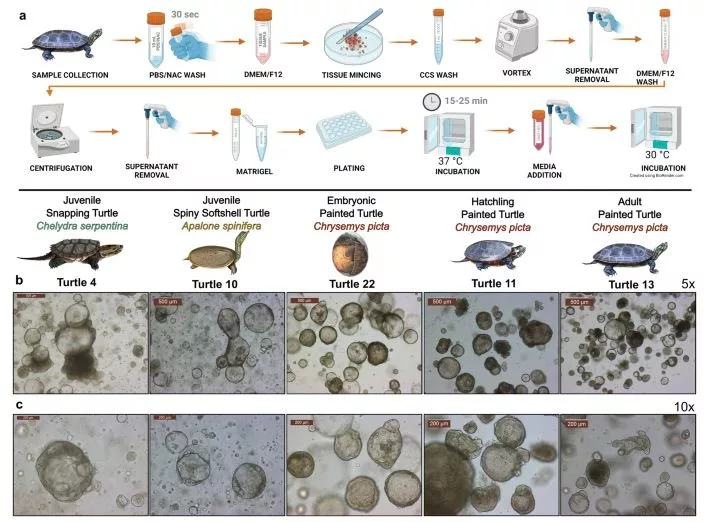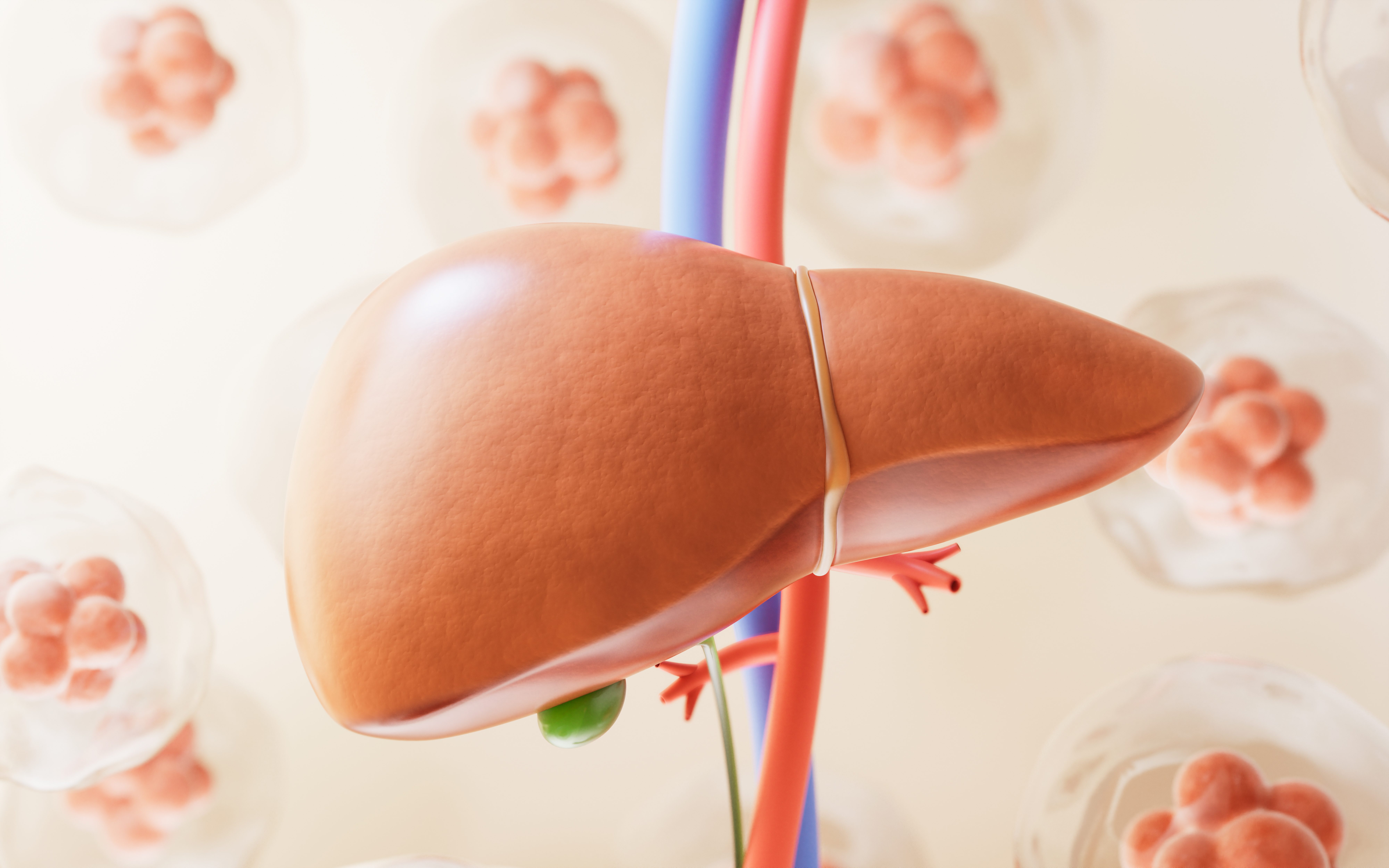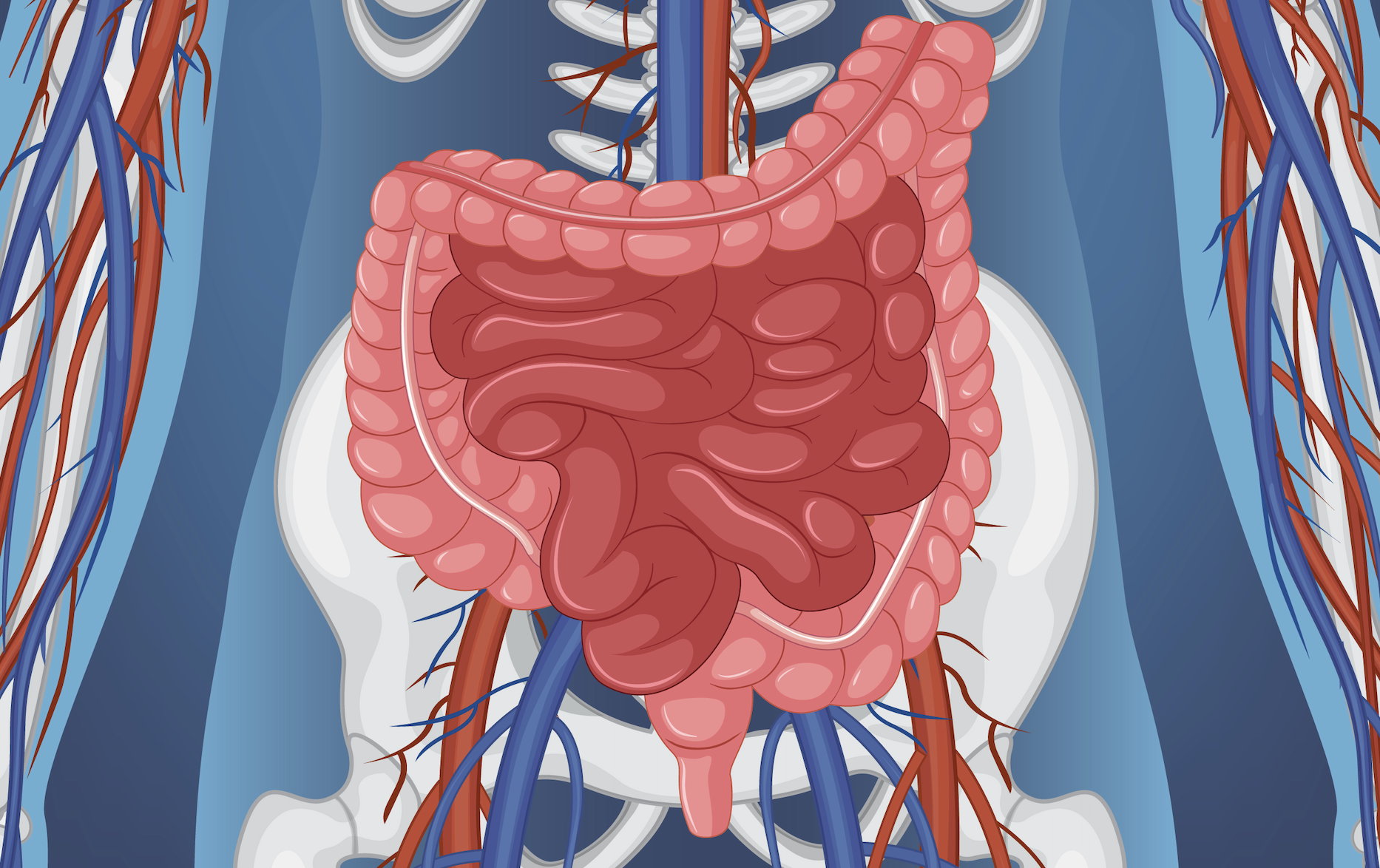Researchers have successfully developed and characterized adult stem cell-derived turtle liver organoids, specifically from painted, snapping, and spiny softshell turtles. These 3D self-assembled in vitro structures offer a unique platform for studying freeze tolerance, supercooling ability, and resilience to hypoxia/anoxia and oxidative stress in painted turtles. The organoids, a first for this vertebrate Order, provide a valuable tool for biomedical research related to hypoxia-induced injuries (such as strokes), tissue cooling during surgeries, and organ cryopreservation. The broad applicability of the techniques to different turtles and life stages opens up opportunities for functional genomic tools in herpetological research, supporting studies on genome-to-phenome mapping, gene function, genome architecture, and adaptive responses to climate change, with implications for ecological, evolutionary, and biomedical research.
Keywords: Organoids





